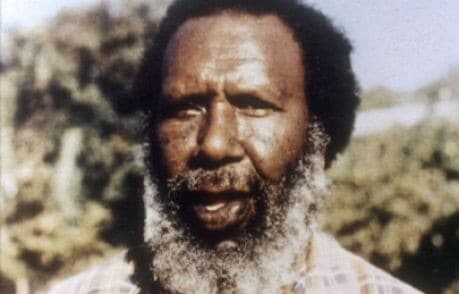Reconciliation Week - Let's Take the Next Steps
Reconciliation Week at Robina First
"I have been visiting schools for more than 10 years, I love sharing my knowledge and skills with students and teachers"
Uncle Boomerang (Paul Craft)
Uncle Boomerang (Paul Craft) Visit - Friday 2nd June
On Friday 2nd June 2017 Uncle Boomerang (Paul Craft) from Burragun Aboriginal Cultural Services will be visiting our Centre
Paul is an active and contributing member of the Aboriginal and Torres Strait Islander communities in South East QLD and Northern NSW. He was born in Brisbane and now resides Mudgeeraba Gold Coast. Paul is a Bundjalung-Yugambeh descendant.
Paul visits schools sharing culture and delivering educational lessons such as art, music, stories, language, traditional games, artifact displays, art works and demonstrations.
Paul founded the first ever all Aboriginal boomerang team named 'Deadly Returns'. Paul was on the Australian team at the World Boomerang Cup Perth 2014.
'Reconciliation' is about Aboriginal and non-Aboriginal Australians talking, walking, and working together to overcome the reasons that there is division and inequality between Aboriginal and non-Aboriginal Australians.
Reconciliation South Australia
http://www.reconciliationsa.org.au/reconciliation
What is Reconciliation?
National Reconciliation Week (NRW) runs annually from 27 May – 3 June and builds on the respectful relationships shared by Aboriginal and Torres Strait Islander people and other Australians. These dates mark two milestones in Australia's reconciliation journey: The 1967 referendum and the historic Mabo decision, respectively.
In 2017, we reflect on two significant anniversaries in Australia's reconciliation journey – 50 years since the 1967 referendum, and 25 years since the historic Mabo decision.
May 27—Marks the anniversary of Australia's most successful referendum and a defining event in our nation's history. The 1967 referendum saw over 90 per cent of Australians vote to give the Commonwealth the power to make laws for Aboriginal and Torres Strait Islander peoples and recognise them in the national census.3 June—Commemorates the High Court of Australia's landmark Mabo decision in 1992, which legally recognised that Aboriginal and Torres Strait Islander peoples have a special relationship to the land—a relationship that existed prior to colonisation and still exists today. This recognition paved the way for land rights or Native Title.
Until Mabo, we had been a forgotten people
Douglas Bon
"Eddie 'Koiki' Mabo was a Torres Strait Islander who believed Australian laws on land ownership were wrong and fought to change them. He was born in 1936 on Mer, which is also known as Murray Island, in the Torres Strait.
...Eddie believed the land he lived on belonged to the Torres Strait Islander people who had lived there for thousands of years. But the Australian Government also believed that it owned the land.
In 1981, Eddie Mabo made a speech at James Cook University in Queensland, where he explained his people's beliefs about the ownership and inheritance of land on Mer. A lawyer heard the speech and asked Eddie if he would like to challenge the Australian Government in the court system, to decide who the true owner of land on Mer was—his people or the Australian Government. And this is exactly what Eddie Mabo did".
Source: http://www.reconciliation.org.au/nrw/wp-content/uploads/2014/03/Mabo-decision_2017.pdf
Image source: http://www.australianstogether.org.au/stories/detail/mabo-native-title
The Mabo decision was a turning point for the recognition of Aboriginal and Torres Strait Islander peoples' rights, because it acknowledged their unique connection with the land. It also led to the Australian Parliament passing the Native Title Act in 1993.
Eddie Mabo was an Indigenous land rights advocate and an activist for Indigenous rights. He worked with his community to make sure Aboriginal children had their own schools and that Aboriginal people were recognised as the rightful custodians of the land.
Mabo's is "an iconic story in the tradition of great Australian tales, how a man, his wife and his mates profoundly changed the nation" (Perkins, 2012).
Sources:
Kennedy (2012).Eddie Mabo, The man who changed Australia. BBC News, Sydney.
http://www.reconciliation.org.au/nrw/wp-content/uploads/2014/03/Mabo-decision_2017.pdf
Image Source: http://www.australianstogether.org.au/stories/detail/mabo-native-title
Mabo's is an iconic story in the tradition of great Australian tales, how a man, his wife and his mates profoundly changed the nation
Perkins 2012
At Robina First we recognise that children are the future of Australia. The experiences we provide to children today will shape the people they become and the future of our great country.
We want to challenge them to be the best that they can possibly be.
We want them to have high expectations and positive role models.
We want them to shoot for the stars, full of confidence and self-belief and the knowledge that they can make a difference.
We thought long and hard about this concept and thought we need to show children just how incredibly innovative, compassionate and talented Australians are!
Well if we are going to talk the talk then we need to walk the walk!
We thought, how we can implement this concept from the ground up?
So, we decided to name each room after Australian's that have truly made a difference in Australia. We want the names of our rooms to be a constant reminder to the children, educators and families that with perseverance, strength and courage they can make a profound difference.
We believe that Eddie Mabo was an Australian that embodied these qualities and values and have named our Junior Kindy room after this very special Australian.





